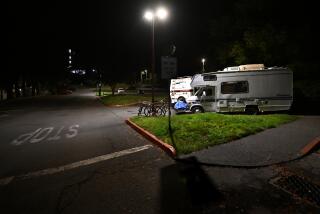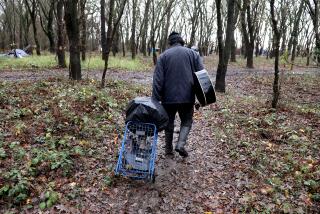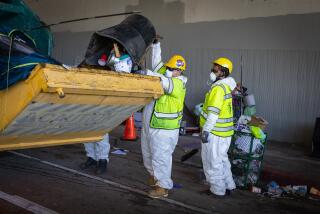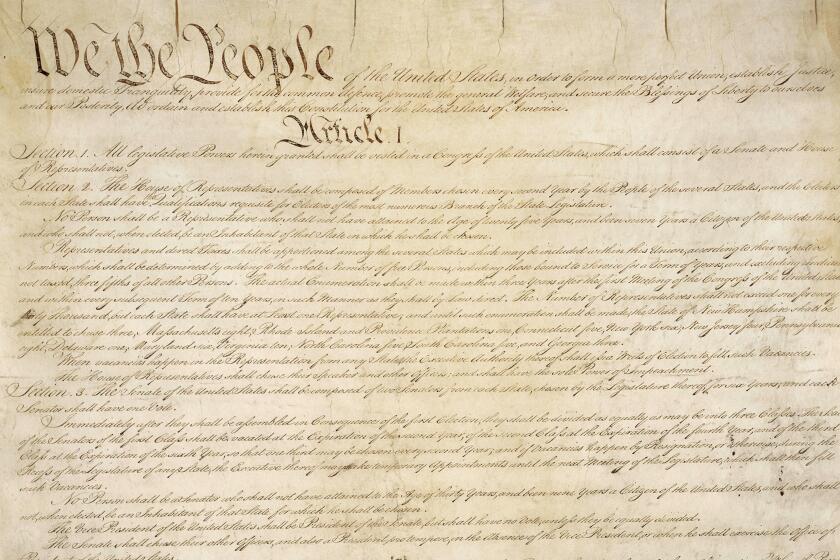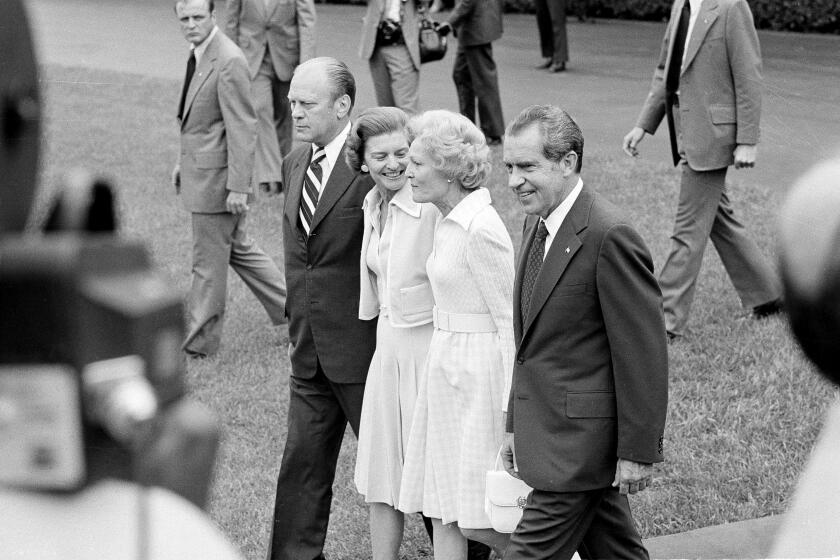Op-Ed: The Camp fire took my home. Now I understand that no one ends up sleeping under an overpass by choice
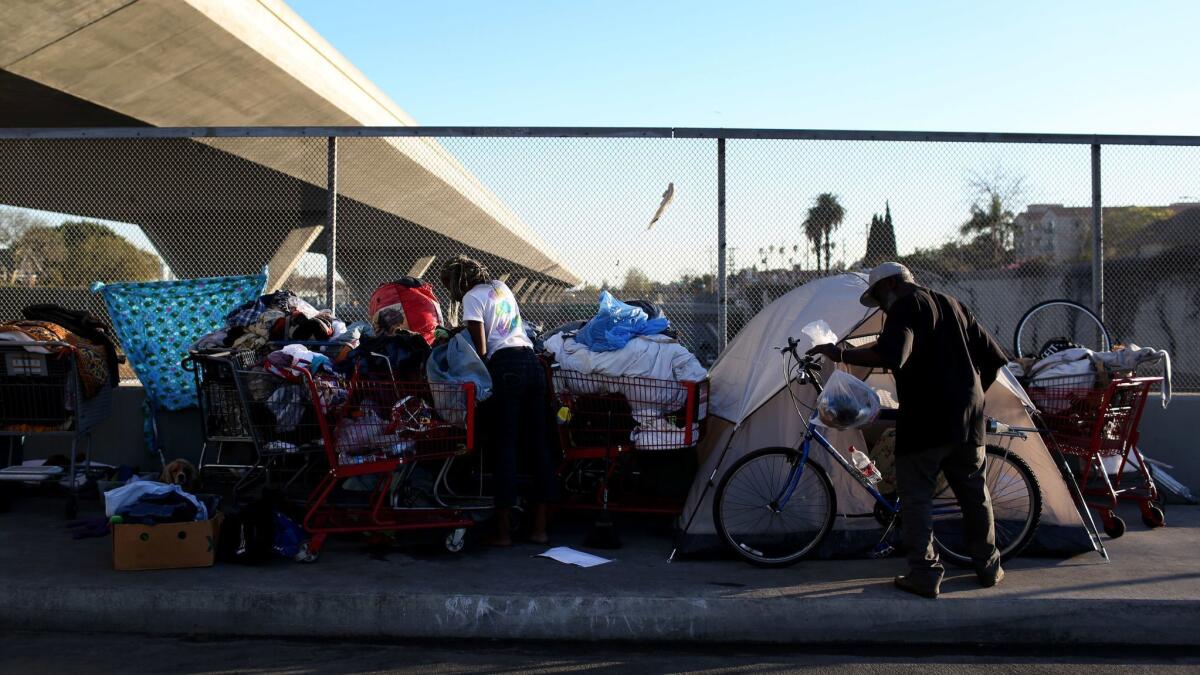
Since the fire that wiped out Paradise and Magalia, Calif., — and my house — on Nov. 8, I’ve thought about the homeless every single day. Until I joined their ranks, I had forged a tenuous truce with my conscience where the less fortunate were concerned, handing out spare change or writing a charity check with a mix of queasy self-pride and guilt.
Then I became “less fortunate.” I wasn’t reduced to sleeping in a tent on skid row, nor did I have to ask strangers for a handout, but I was humbled nonetheless, humiliated, daily, at being displaced, literally a refugee. Though I carried a credit card that wasn’t maxed out, and though I still had a car, my status in the world had been redefined, and I felt the change.
For the record:
6:50 p.m. Dec. 10, 2018An earlier version of this piece misspelled the author’s name. It is Jaime O’Neill, not Jaime O’Neil.
I didn’t like being an object of pity. And though the sympathy nearly everyone expressed was kind and well-intended, as I bought new underwear or my wife explained why she was purchasing toothpaste and a new hair brush, the expressions on the faces of people at the store checkout betrayed a detectable condescension, an unmistakable “oh-you-poor-people” subtext that is bound up in the concern people show the needy.
We are all a spark away from less fortunate.
That we were in no way responsible for our misfortune didn’t do much to help my diminished sense of self. I’d been through a few rough patches over the course of my life, times of uncertainty or joblessness, but I’d never been among the “less fortunate” as an adult.
Days after the fire, I caught a cold, a bad one. We had taken refuge in Sacramento, where there are more people, more traffic, more affronts to sensibilities long adjusted to the quieter world of piney woods that are no longer there. Stress, worry and lack of sleep were doing nothing for the cold. I also kept forgetting to buy a razor and I was waking up to the face of a guy who was considerably the worse for wear. You know, like a homeless guy.
My fire-bestowed, genteel homelessness has brilliantly illuminated a reality I’d never adequately imagined. As we have made our way, slowly piecing together some semblance of normality, the truly homeless have been visible everywhere we looked. In Sacramento, about 4,000 “unhoused” people sleep on the streets every night. The capital of one of the richest states in the richest nation in the world is in no way unique in its inability to address the intractable homeless “problem,” though the disgrace of it seems particularly ironic here.
One day on line at Target, I heard two women exchanging views ahead of me. “I’d like to donate money to the fire victims,” said one, “but I hear some of the regular homeless are taking advantage of the situation.” Her companion shook her head, adding, “Yeah, how do we know our money won’t go to people who just chose homelessness as a lifestyle?”
I didn’t say anything to those women, so I’ll say it here. If everything you own is in a shopping cart, if you don’t have assured access to privacy, to shelter, to warmth, to a toilet, or a bed, you didn’t choose that as a “lifestyle.” Misfortune made the choice for you. No one ends up sleeping under an overpass on purpose.
Enter the Fray: First takes on the news of the minute from L.A. Times Opinion »
It has taken less than a month for us to find and rent a small house. We understand how lucky we are. Thanks to good credit and a modest but secure retirement income, we are re-sheltered, though our new rooms are oddly empty. Our circumstances are reduced, and they may stay that way, in part, for the rest of our lives. What we lost forever was mostly things, but things that gave us an identity, a sense of self erased by that all encompassing fire.
When I see the truly homeless now — and I can’t help but notice them every day — I cannot escape my knowledge of our kinship. When I see pictures of desperate families at the border, who left everything behind, I don’t feel a smidgen of condescension. Perhaps it won’t last but for now at least, “you poor people” doesn’t cross my mind.
We are all a spark away from less fortunate.
Jaime O’Neill last wrote about escaping the Camp fire on Nov. 18.
Follow the Opinion section on Twitter @latimesopinionand Facebook
More to Read
A cure for the common opinion
Get thought-provoking perspectives with our weekly newsletter.
You may occasionally receive promotional content from the Los Angeles Times.
